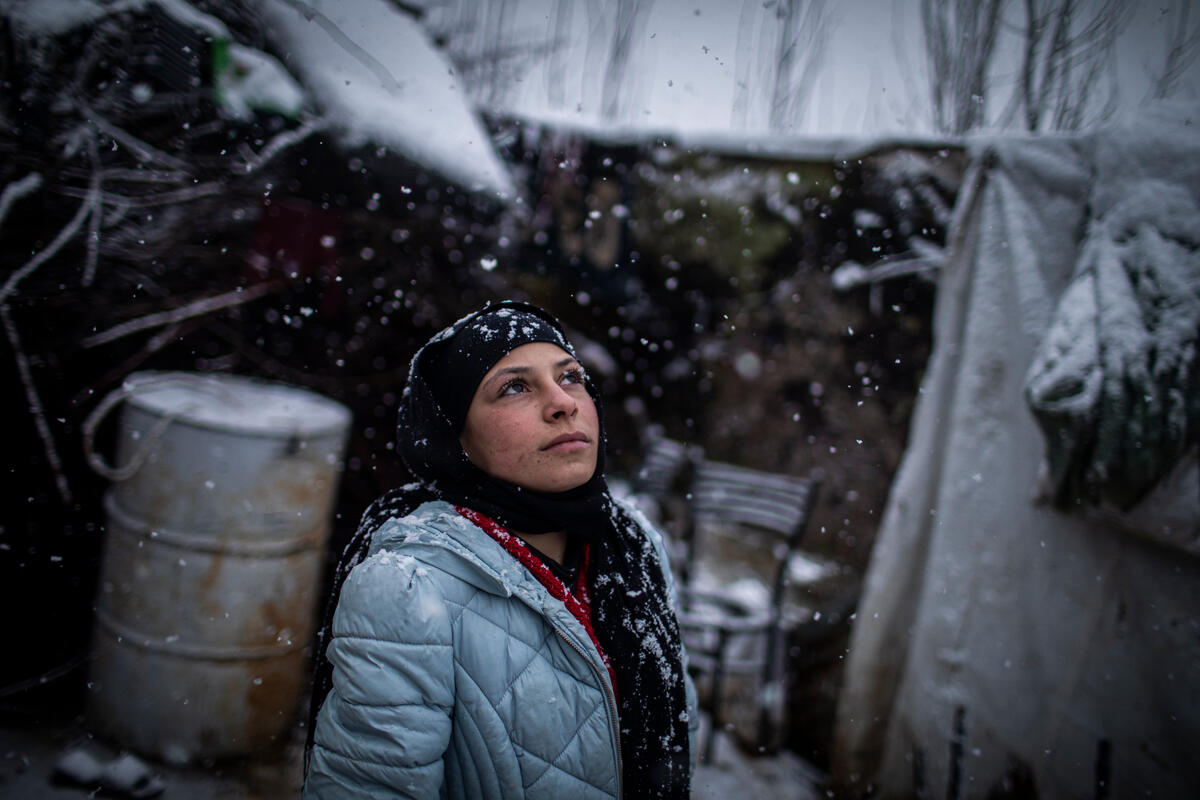Too young to be a bride

Too young to be a bride
When Omaima first arrived at Jordan’s Za’atari camp in 2012, the 11-year-old refugee from Syria was not aware of the issue of early marriage. Then some of her classmates started vanishing.
When conflict forced her and her family to leave their once-comfortable lives in Damascus and seek safety in Jordan, Omaima’s main priority was resuming her education and finding new friends in the sprawling camp, currently home to nearly 80,000 refugees.
“When I got to sixth grade [in 2013], I started hearing about girls as young as 12 or 13 getting married. They would come to the school to say goodbye. I remember thinking they were making a big mistake, even before I knew the facts,” Omaima, now 15, tells visitors from UNHCR.
What really brought the issue home was when one of Omaima’s best friends, Basma*, was married off by her family just before her 14th birthday.
“We were always together, and she was one of the best students in our class,” Omaima remembers. “She didn’t want to get married, but her parents thought it was the best option for her.”
As is the case with most early marriages, Basma left school after the wedding and Omaima didn’t see her friend again. That episode made Omaima determined to try to stop the same fate befalling other girls in the camp.
She sought out information on the risks of early marriage, and then encouraged friends and classmates to share it with their parents to try to dissuade them from the practice.
She also organised drawing and acting sessions for girls her age as a way of communicating and visualizing the issue. She noticed her efforts were having an effect when she was able to convince several underage girls who planned to get married to change their minds and continue with their education.
Under Jordanian law, the minimum age of marriage is set at 18 years. Religious (Shari’a) judges may authorize marriages involving children as young as 15, provided the child’s best interests are taken into account. Despite the law, and the best efforts of the authorities, there are also cases of local sheikhs conducting unofficial marriages involving girls 14 or younger, which are not considered legal under the law.
While there is a cultural tradition of early marriage in some parts of Syria, including rural areas of Dara’a province, where the majority of refugees in Za’atari are from, various factors have led to its increased prevalence among Syrian refugees in Jordan. These include the more challenging living conditions, and the precarious economic situation of some families, which encourage them to marry off their daughters to ease their financial responsibilities.
In pre-war Syria as a whole, an average of 13 per cent of all marriages involved someone below the age of 18. Among Syrian refugees living in Jordan, this rate had risen to 32 per cent by the first quarter of 2014.
Working in cooperation with the local Shari’a judge based in Za’atari camp, UNHCR provides early marriage counselling to all individuals intending to marry before turning 18. Such counselling is designed to raise awareness of the risks of early marriage, including the health dangers posed by early pregnancy.
If there is any evidence that the child is under 15 years old, or that the marriage is forced, UNHCR provides extensive counselling to families on the legal, health and psychological consequences in cooperation with the government’s Family Protection Unit, which will seek to prevent such marriages taking place.
“Despite the physical and psychological risks involved, if the child is 15 years or older and all parties agree, and if no other specific concerns are identified, we face challenges in preventing such early marriages,” says Sophie Etzold, a UNHCR protection officer at Za’atari.
As part of her continuing efforts to combat the issue, Omaima has been working as an outreach volunteer since last year with a child protection group in the camp run by Save the Children. “I feel proud that I’m doing something to help other girls and address this problem,” she says.
Omaima says she looks forward to getting married herself one day. “But only on my terms, after I’ve finished my education and been to university. And hopefully when I do get married, I won’t be living in Za’atari anymore.”

















